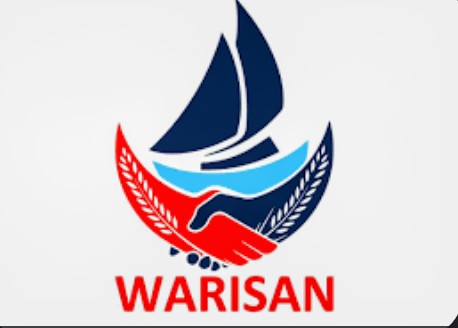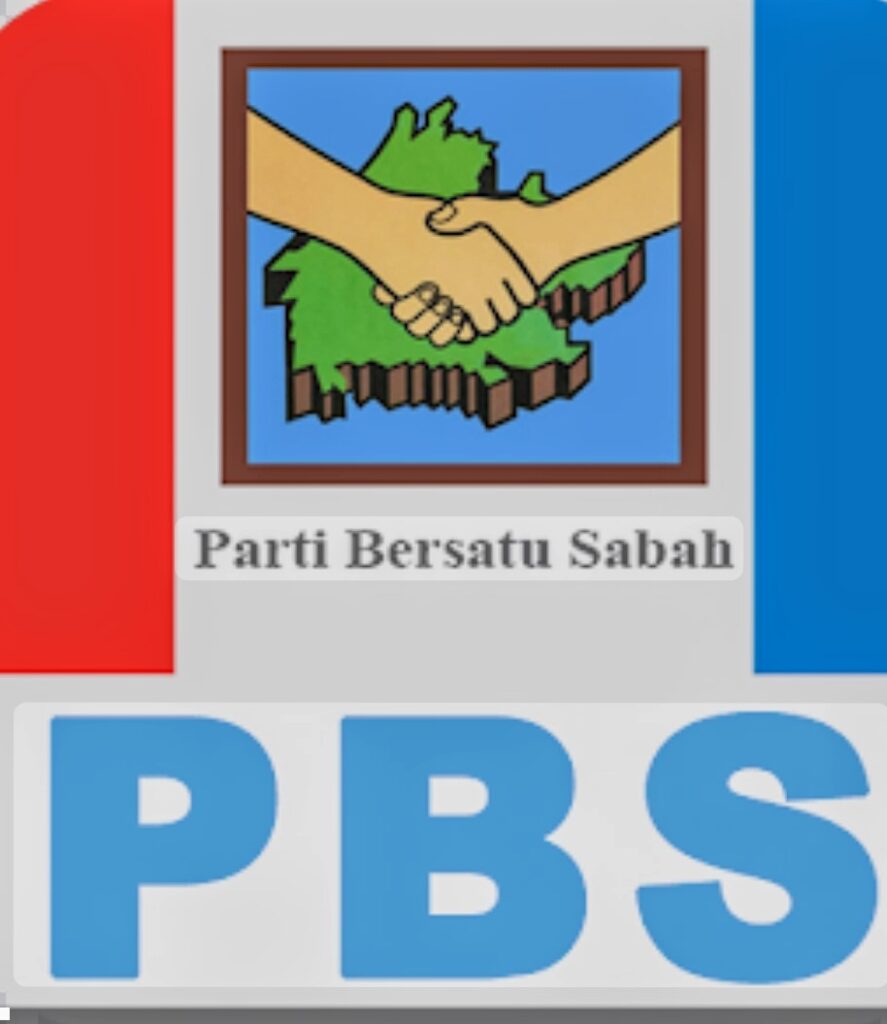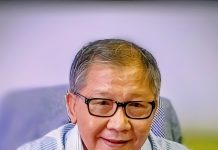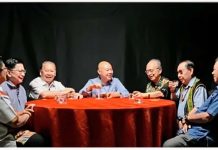By Dr Arnold Puyok
Visiting Senior Fellow at ISEAS – Yusof Ishak Institute, and a Senior Lecturer in Politics and Government Studies at the Faculty of Social Sciences and Humanities, Universiti Malaysia Sarawak (UNIMAS).
“Sabah’s political parties are manoeuvring for political advantage as the state polls loom closer.”
SABAH politics will soon take centre stage in Malaysia, with state elections due within 18 months.
However, the possibility of holding the election before the current state assembly’s expiry date is high as the ruling coalition, Gabungan Rakyat Sabah (GRS, Sabah People’s Alliance), is not at its strongest.

Moreover, GRS’ competitors, such as Warisan and United Malays National Organisation (UMNO), are pulling out all the stops to seize power.
The presence of nearly 20 political parties in Sabah suggests that anyone can increase their stakes in its volatile political scene.
As political actors intensify their efforts to gain a foothold in Sabah politics and consolidate their influence, all eyes are on GRS, which strives to emerge as a dominant player akin to Gabungan Parti Sarawak (GPS, Sarawak Parties Alliance) in Sarawak. Both coalitions aspire to emerge as the dominant political bloc in East Malaysia, representing exclusively local-based parties from Sabah and Sarawak.
GPS’s supermajority of 79 out of 82 state assembly seats provides the coalition —comprised entirely of Sarawak-based parties — with stability, insulation from Peninsula politics, and the ability to implement bold policies.
In contrast, GRS’s position, although seemingly secure based on the number of seats it currently holds, is less stable due to internal dynamics that may lead to potential conflicts and affect its standing.
Additionally, GRS is likely to face external challenges from Warisan, Sabah’s young and determined party striving to make a difference, and UMNO, the leading component party of Barisan Nasional (BN), Malaysia’s long-established coalition with a significant presence in Sabah.

With Sabah’s state election due by December 2025, five years after the first sitting of the current government, GRS is doing everything possible to stay in power and maintain unity among its component members despite challenges from BN and Warisan.
Sabah’s state government also holds a commanding majority, but unlike GPS in Sarawak, the GRS-led coalition is disparate and complicated.
GRS component parties are Sabah-based, but its coalition partners belong to the BN and Pakatan Harapan coalition of Peninsula-based parties UMNO, the Democratic Action Party (DAP), and Parti Keadilan Rakyat (PKR) (they were previously on different sides of the bench, but now rule together in a Unity Government at the federal level).
In addition, Warisan is aligned with the federal Unity Government but heads the opposition bench in Sabah.

Similarly, UMNO is part of the Unity Government but sits in opposition in the state.
With Sabah’s state election due by December 2025, five years after the first sitting of the current government, GRS is doing everything possible to stay in power and maintain unity among its component members despite challenges from BN and Warisan.
It is also intriguing to see whether GRS will continue its alliance with PH or go it alone.
PH currently holds federal power under Anwar. However, Hajiji Noor, who is Sabah’s Chief Minister, president of Gagasan, and chairman of GRS, seems determined to maintain the partnership with PH, as it ensures GRS’s continued positive relations with the federal government under Anwar.
Additionally, this approach will prevent PH from making inroads in Sabah at the expense of Gagasan, the state’s biggest party by number of seats.
GRS and Hajiji should be concerned about how PBS and STAR are currently positioning themselves.
They seem prepared to go independently should things not go well in GRS. They could also do so for the sake of the unity of the Kadazandusun (the biggest ethnic group in the state) and local-based parties.

It is still not clear if the recent Memorandum of Understanding (MOU) between PBS and STAR will eventually lead them to merge into a single entity.

However, the MOU serves as a clear signal to their rivals aspiring to contest in Kadazandusun-dominated areas that the 13 seats currently held by PBS and STAR are firmly under their control. And the seats are non-negotiable, even among the component members of GRS.
The next challenge for GRS is the fact that anchor party Gagasan is not in the best shape. It lacks a clear vision, policy direction, and ideology for Sabah.
It was established at the spur of the moment in response to the prevailing political climate at the time of its formation.
Furthermore, many of its members, especially elected ones, were previously affiliated with UMNO and Parti Pribumi Bersatu Malaysia (Bersatu).
These politicians had left the Peninsular-based parties to join Gagasan. Given that Sabah politics remains fluid, shifting alliances are still a possibility, even close to election time.
Another significant issue within Gagasan is its lack of formidable personalities beyond Hajiji himself, and its lack of support among the Kadazandusun community. Without Kadazandusun’s backing, Gagasan might face a similar fate to Warisan, which lost the support of this key community, weakening its base, especially in the interior of Sabah.
This dependency underscores why Gagasan needs the support of PBS and STAR to secure Kadazandusun backing within GRS.
There is a possibility that UMNO and Warisan could work together to dislodge GRS’s influence. Despite perceptions that UMNO is riddled with factional politics in Sabah, its presence in the state for over 30 years has established it as a formidable force in Sabah politics, especially among the Muslim Bumiputera communities. UMNO possesses a formidable party machinery and loyal supporters, making it difficult for any parties to undermine its influence.
Similarly, Warisan has its own loyal supporters, particularly on the east coast. One of the challenges Warisan faces is strengthening cohesion within its membership and broadening its appeal, particularly in garnering more backing from the Kadazandusun community.
Should UMNO and Warisan team up to challenge GRS, it will give the coalition a run for its money, particularly in Muslim Bumiputera constituencies.
However, it is also possible that UMNO decides to work with GRS instead of Warisan.
One should keep in mind that PH and UMNO are partners in the Unity Government at the federal level, which could influence the formation of political alliances in Sabah.
GRS can undermine Warisan by persuading UMNO to shift its support to the coalition and PH in Sabah.
The outcome of the political saga in Sabah will not only determine who holds power but will also reflect broader trends in Malaysia’s electoral politics.
As the political drama unfolds, one thing remains certain: the eyes of the nation will be on Sabah, watching as its leaders traverse this turbulent path. In the end, the resilience and adaptability of Sabah’s political players will be the ultimate test of their ability to thrive in Malaysia’s ever-evolving political arena.
Editor: This article has appeared in https://fulcrum.sg/



